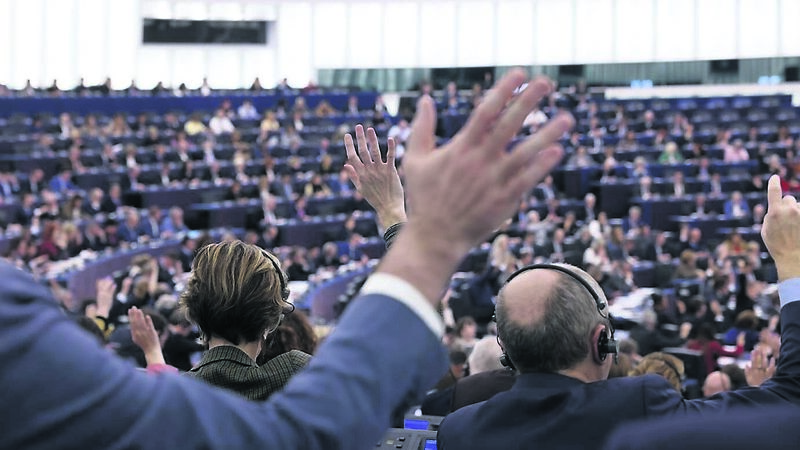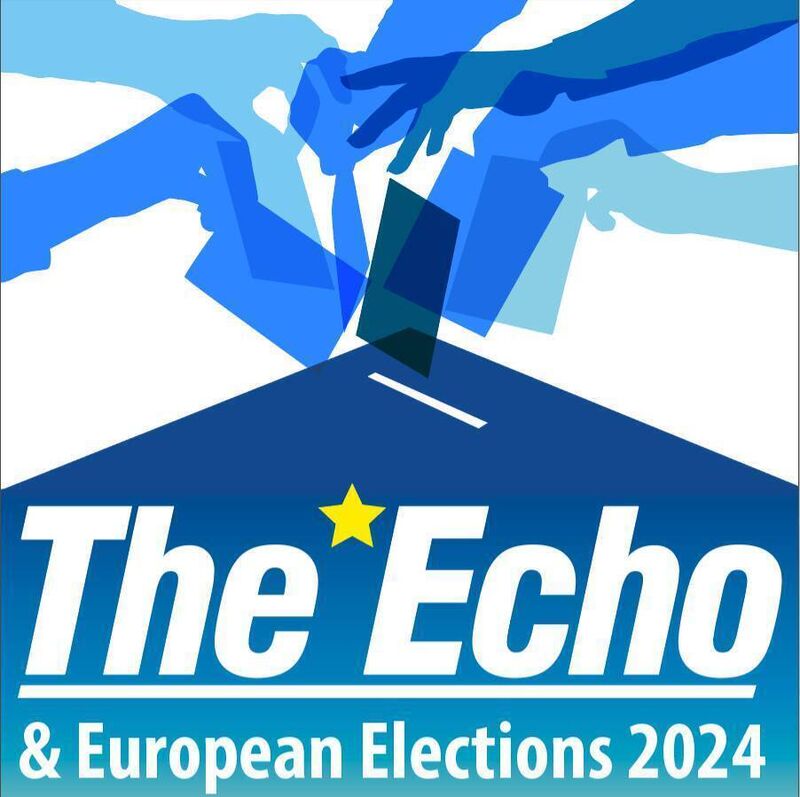European Elections: What does an MEP do?

Members of the European Parliament in Strasbourg, eastern France.
IRISH voters will this week head to the polls to elect their chosen representatives in both local and European elections. Over 400 million people are eligible to vote across the European Union in the European Parliament elections, making it the world’s biggest cross-border election.
Nominations in Ireland closed over two weeks ago and a total of 73 candidates have declared their intention to run to become a member of the European Parliament (MEP). Irish voters will elect 14 MEPs across three constituencies. There are 23 candidates contesting in the South constituency, 23 in Dublin, and 27 in the Midlands-North-West. Altogether, there will be 720 MEPs elected across all EU countries and these chosen candidates will have a mandate of five years.
Over the last few decades, the legislative power of the European Parliament has evolved. In the 1950s the Parliament was a consultative body; one with symbolic functions but with no real influence on the policy-making process. However, under the Lisbon Treaty, which came into effect in late 2009, the Parliament’s powers significantly increased.
But amongst the hustle and bustle of canvassing season, many of you may be rightly asking the fundamental question: “What can an MEP do for me?”
To cut right to the chase - MEPs represent their constituents at the EU level. MEPs debate, amend and pass European legislation on behalf of EU citizens regarding issues that are central to their daily lives. Your MEPs also represent you during interinstitutional negotiations with national ministers who sit on the Council of the EU and the European Commission during so-called “trilogues”.

For example, over the last five years MEPs have negotiated new laws in a variety of different sectors, including, the European Climate Law and the EU Digital COVID Certificate regulations, as well as rules to prevent gender-based violence, rules to tackle the challenges associated with migration and rules on Artificial Intelligence.
MEPs can be members of national political parties or can be independent. While in the European Parliament, MEPs sit in EU-wide political groups or are Non-Inscrits (Non-attached).
Parliamentary political groups are not organised by nationality but rather by political affiliation. There are currently seven political groups within the European Parliament, spanning from the political extreme right to the political extreme left. Some of the current Irish candidates have already disclosed which group they would sit in, should they be successfully elected, but not all have confirmed.
MEPs divide their time between their constituencies and two different cities: Strasbourg and Brussels. Every six weeks, MEPs spend one week carrying out “external parliamentary activities”. This could involve work back in their home country constituencies, or to do investigative work abroad with committees. During these weeks, Irish MEPs can also attend any Dáil committee if there is an issue that they would like to have a say on.
In Strasbourg, MEPs debate and vote on new laws during what is called a “plenary” session. Plenary sessions last four days and take place once a month. While in Brussels, MEPs take part in meetings with their political groupings and within parliamentary committees. Committees are organised around different EU competencies. For example, Irish MEPs sit on committees concerning the environment, economic affairs, civil rights, transport, and agriculture. These committees are similar to the Oireachtas committees and MEPs that sit in them examine proposed legislation, organise hearings with experts and have the opportunity to examine policy issues more closely.
There are several important aspects to consider as we approach the June elections. With the rise of disinformation, and political and social fragmentation, there are increasing levels of mistrust in institutions amongst citizens. In a 2024 poll commissioned by EMI, 49% of survey respondents in Ireland believe that the EU is moving in the right direction. This represents an 11% decrease since 2023; a dip which conveys an element of nervousness or dissatisfaction among citizens regarding the EU’s future trajectory.
However, support for democratic principles such as voting remains strong among Irish citizens.
In the same 2024 EMI poll, 88% of respondents believed that it was important to vote in the European elections. In the same way, support for Ireland’s membership of the EU also remains high, with 84% of those surveyed believing Ireland should remain a member.
Lastly, it is important to note that the reality painted in the official turnout and abstention figures tells a different story. Abstention rates for Irish voters was higher than the EU average during the previous European elections. In 2019, 50% of eligible Irish voters did not cast their vote.
The 2024 European elections are taking place during a time when Ukraine is fighting a war for freedom and democracy and hundreds of thousands of people in Georgia have taken to the streets to protest for a more democratic future. For countries such as Ireland, already an EU Member State and a functioning democracy, it is important to remember that it is a hard-won privilege to be able to vote in democratic elections.
A close contest awaits candidates in Ireland over the next two weeks. Whether you believe that the EU is going in the right direction or not, it is important to remember that the function of MEPs is first and foremost to represent you.
With this in mind, be sure to engage with the candidates who are seeking election; ask them about the issues most important to you, visit their websites, send them an email, follow their social media, read their manifestos, listen to their speaking points – stay informed!
Of course, engagement should not end in June once our Irish MEPs are elected. It is essential to engage on an ongoing basis while MEPs are carrying out their mandate. As mentioned above, MEPs now wield considerable influence in the EU’s policy-making process, so be sure to keep making your opinion and concerns heard long after June 2024.
Irish citizens, from first-time voters to seasoned veterans, have the opportunity to make sure that they will be represented in Europe for the next five years. Take ownership of your representation, cast your ballot, and use your voice.
Check out EMI’s EU Elections Information Hub at https://www.europeanmovement.ie/european-elections-2024/.










 App?
App?


